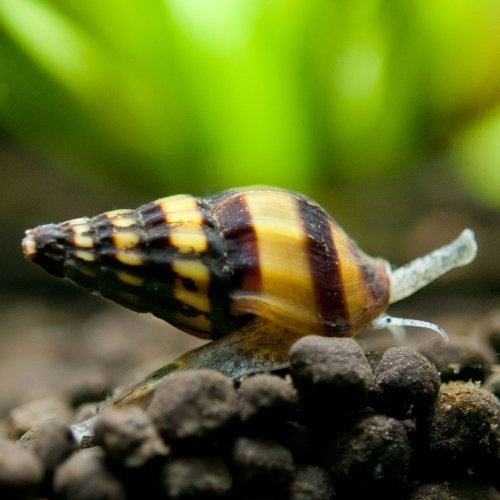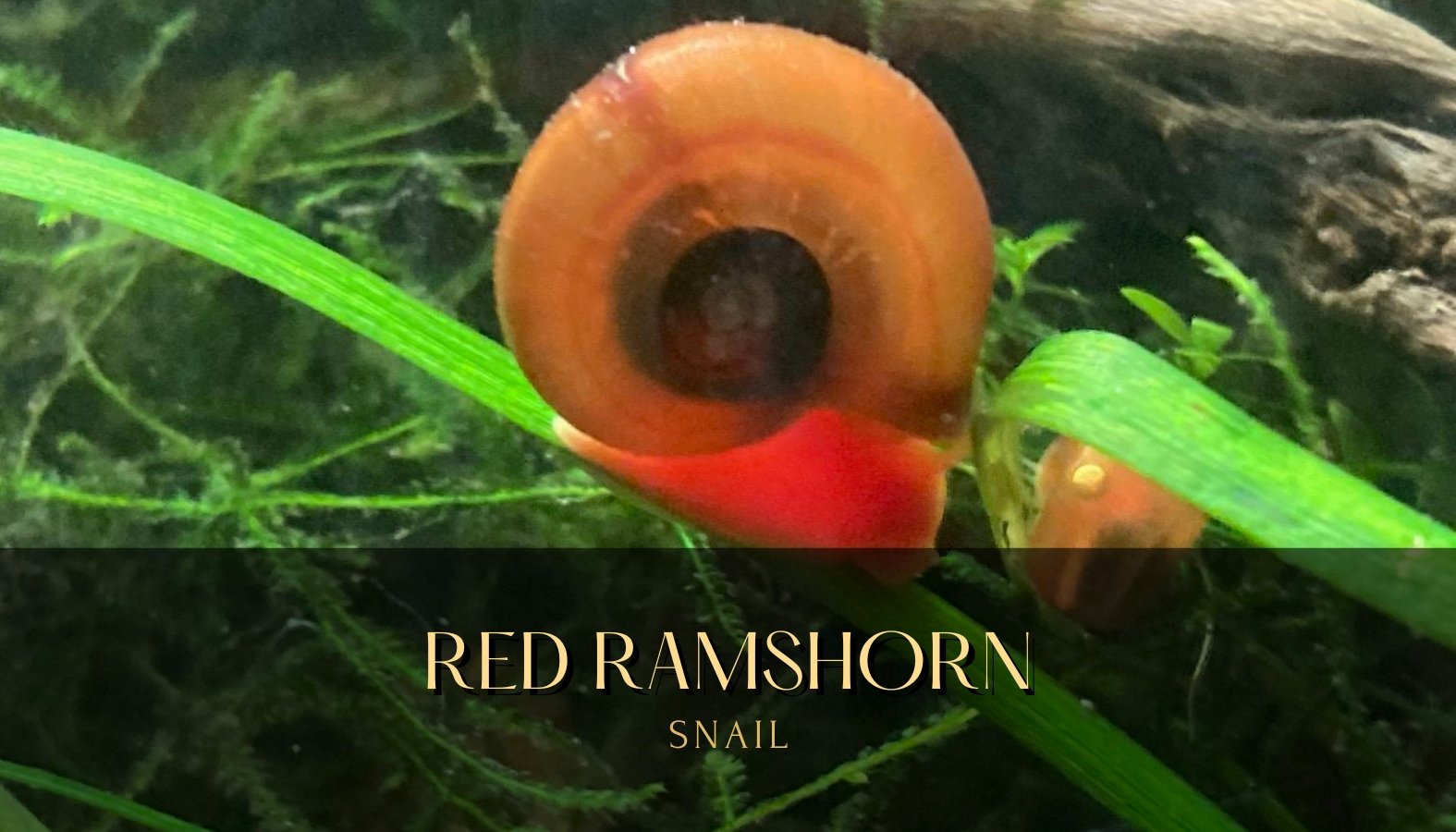

Black Rabbit Snails (Tylomelania Gemmifera)
These are baby / Younger Rabbit Snails! Around 1.5” roughly.
Common Name: Rabbit Snail, Elephant Snail
Scientific Name: Tylomelania sp.
Wild Origin: Lakes and rivers in Sulawesi, Indonesia
Maximum Size:
Up to 4 inches (10 cm), depending on the species
Rabbit Snail Care
Tank Parameters Required:
Minimum Tank Size: 10 gallons (for small groups)
pH: 7.0–8.2 (alkaline water preferred)
gH: 8–20 (hard water)
kH: 4–15
TDS: 150–300
Temperature: 24–30°C (75–86°F)
Behavior and Temperament:
Rabbit Snails are peaceful and slow-moving, making them excellent tankmates for community aquariums. They’re non-aggressive and can coexist with shrimp, small fish, and other snails. However, they may occasionally nibble on soft plants if food is scarce.
Diet and Feeding:
Rabbit Snails are omnivorous and primarily feed on algae, biofilm, and detritus. To supplement their diet:
Offer sinking algae wafers, vegetable-based pellets, and blanched vegetables like zucchini or spinach.
Calcium-rich foods are essential to maintain their shells—cuttlefish bone or calcium supplements can be added to the tank.
Tank Setup:
Use fine sand or smooth gravel substrate to protect their delicate, elongated shells.
Provide hiding spots with rocks, driftwood, and caves.
Keep water well-oxygenated and clean, as Rabbit Snails are sensitive to poor water quality.
Avoid copper-based medications or fertilizers, which are harmful to snails.
Breeding:
Rabbit Snails are livebearers, producing one or two juveniles at a time. They don’t overpopulate tanks like other snail species, making them an excellent choice for aquarists who want manageable snail populations.
Difficulty:
Easy – Ideal for beginners, but they do require stable water parameters and plenty of calcium to maintain their shells.
Interesting Notes:
Rabbit Snails get their name from their rabbit-like head and slow, deliberate movements.
They come in a variety of colors, including yellow, orange, black, and chocolate, depending on the species.
These snails love to burrow in the substrate, so keep an eye out for their "peek-a-boo" moments!
They help keep tanks clean by eating algae and leftover food, but they’re not as aggressive algae eaters as nerite snails.
Note: All images are for illustration purposes only. Variations in size and color may occur due to natural diversity in livestock.
These are baby / Younger Rabbit Snails! Around 1.5” roughly.
Common Name: Rabbit Snail, Elephant Snail
Scientific Name: Tylomelania sp.
Wild Origin: Lakes and rivers in Sulawesi, Indonesia
Maximum Size:
Up to 4 inches (10 cm), depending on the species
Rabbit Snail Care
Tank Parameters Required:
Minimum Tank Size: 10 gallons (for small groups)
pH: 7.0–8.2 (alkaline water preferred)
gH: 8–20 (hard water)
kH: 4–15
TDS: 150–300
Temperature: 24–30°C (75–86°F)
Behavior and Temperament:
Rabbit Snails are peaceful and slow-moving, making them excellent tankmates for community aquariums. They’re non-aggressive and can coexist with shrimp, small fish, and other snails. However, they may occasionally nibble on soft plants if food is scarce.
Diet and Feeding:
Rabbit Snails are omnivorous and primarily feed on algae, biofilm, and detritus. To supplement their diet:
Offer sinking algae wafers, vegetable-based pellets, and blanched vegetables like zucchini or spinach.
Calcium-rich foods are essential to maintain their shells—cuttlefish bone or calcium supplements can be added to the tank.
Tank Setup:
Use fine sand or smooth gravel substrate to protect their delicate, elongated shells.
Provide hiding spots with rocks, driftwood, and caves.
Keep water well-oxygenated and clean, as Rabbit Snails are sensitive to poor water quality.
Avoid copper-based medications or fertilizers, which are harmful to snails.
Breeding:
Rabbit Snails are livebearers, producing one or two juveniles at a time. They don’t overpopulate tanks like other snail species, making them an excellent choice for aquarists who want manageable snail populations.
Difficulty:
Easy – Ideal for beginners, but they do require stable water parameters and plenty of calcium to maintain their shells.
Interesting Notes:
Rabbit Snails get their name from their rabbit-like head and slow, deliberate movements.
They come in a variety of colors, including yellow, orange, black, and chocolate, depending on the species.
These snails love to burrow in the substrate, so keep an eye out for their "peek-a-boo" moments!
They help keep tanks clean by eating algae and leftover food, but they’re not as aggressive algae eaters as nerite snails.
Note: All images are for illustration purposes only. Variations in size and color may occur due to natural diversity in livestock.











